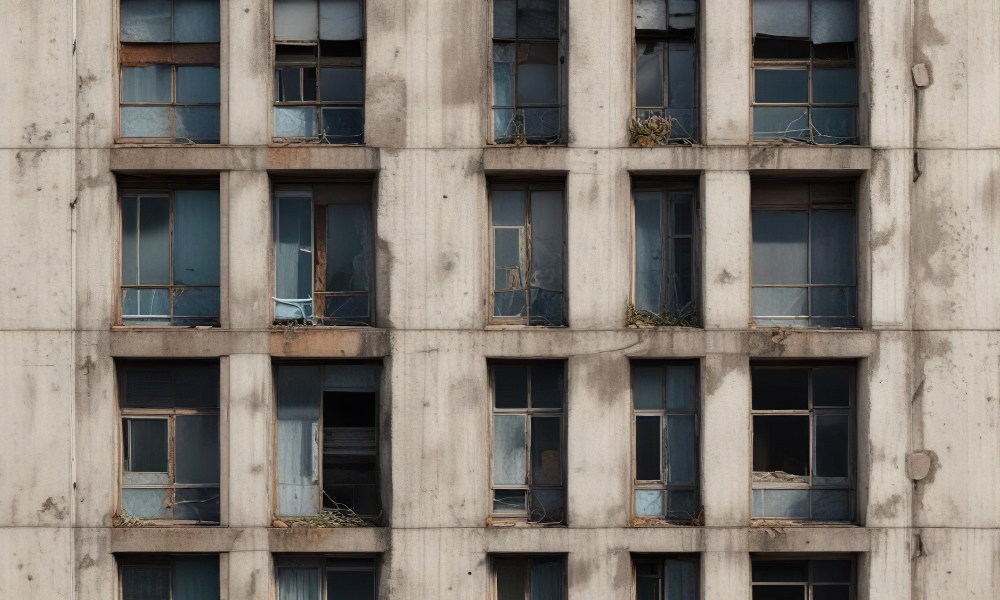Many condo owners have no idea until it's too late

A growing number of condominium owners across Florida are discovering they’re unable to sell or refinance their homes, often blindsided during a transaction, due to their building being placed on Fannie Mae’s secret mortgage “blacklist.”
The confidential list, which Fannie Mae uses to mark buildings ineligible for loan backing, has more than doubled in South Florida over the past two years, according to The Wall Street Journal and legal experts tracking the issue. It now includes 696 condo buildings across Miami-Dade, Broward, and Palm Beach counties, nearly half of all the 1,438 ineligible buildings across Florida.
“I think it’s the perfect financial storm for condominiums in Florida,” said Jake Marcus, an attorney with the Miami-based firm Allcock Marcus, which has obtained the list through a confidential source. “There is just a lot happening in Florida with all the new requirements.”
Owners learn they’re blacklisted only after loan denials
Fannie Mae, a government-sponsored enterprise that backs roughly 70% of residential loans nationwide along with Freddie Mac, does not disclose the list publicly. Condo owners and associations typically find out only when a mortgage lender rejects a buyer’s application, stalling a sale or refinance.
While alternative lending options exist, non-conforming loans are typically more expensive and harder to qualify for, and all-cash deals, which remain common in South Florida, don’t rely on Fannie or Freddie standards.
Although Freddie Mac uses similar eligibility criteria, it remains unclear if the agency maintains a comparable list or evaluates projects individually.
“We believe they do,” Marcus said, “but we don’t have access to Freddie Mac’s information.”
Getting removed from the Fannie Mae list is possible, but Marcus said it’s a labor-intensive process, and many associations don’t know where to begin. His firm now offers an online resource for condo board officers to check whether they’re listed and to begin the removal process.
Surfside collapse
The increase in flagged properties is directly linked to stricter underwriting rules implemented by Fannie Mae after the 2021 collapse of Champlain Towers South in Surfside, Fla. Those rules now require extensive financial and structural reporting from condo associations before loan approval.
Typical reasons a condo building becomes ineligible include:
- Critical repairs or structural deficiencies (e.g., water intrusion, mold, advanced deterioration)
- Inadequate financial reserves
- High rental ratios or delinquencies
- Lack of proper insurance
- Condo-hotel status, which may raise concerns about commercial use
Many of these issues are linked to new state laws passed in 2023 and 2024 that require more frequent inspections and reserve funding for condos three stories or taller. But with reserves long allowed to be waived under prior Florida law, many associations are now struggling to come into compliance, and doing so quickly means raising large sums of money.
Condo insurance premiums have also skyrocketed, further straining associations’ financials.
“That confluence has made already shaky finances for many older and less-affluent associations and owners even more tenuous and, in some cases, unsustainable,” Marcus said.
The hidden nature of the list has left many condo owners in a difficult bind, unable to sell due to loan denials and unable to cover the special assessments, rising maintenance fees, and insurance costs needed to address repairs.
Marcus said many condos remain unaware they’re on the list, while others are watching their property values decline. Some buildings are even struggling to get financing for repairs because of the Fannie Mae flag.
For decades, condos were seen as a more affordable path to homeownership.
“Condominium living is becoming significantly more expensive than in the past, when condos were the more affordable option,” Marcus said.
Developers target blacklisted condos
Legal and industry experts are warning that the current dynamic may increase pressure on condo associations to sell their buildings in bulk to developers, especially in prime areas like Miami.
While bulk sales remain rare, Florida law allows a small minority of unit owners to block them, Marcus noted that lobbying efforts are already underway to relax those restrictions.
“They’re going to see the need for it,” he said. “People are going to lobby for it as a better way out than levying special assessments of hundreds of thousands of dollars and still leaving associations in deep disarray.”
Read next: Condo owners in Florida rush to sell as safety laws tighten
Although Fannie Mae disputes the term “blacklist,” Marcus confirmed the confidential list has been around for at least 21 years, though it remained largely unnoticed until the recent wave of rejections brought it into public view in 2023.
Allcock Marcus has declined to publish the list, citing potential reputation damage and liability issues, but continues to offer assistance to condo boards navigating its implications.
Stay updated with the freshest mortgage news. Get exclusive interviews, breaking news, and industry events in your inbox, and always be the first to know by subscribing to our FREE daily newsletter.



